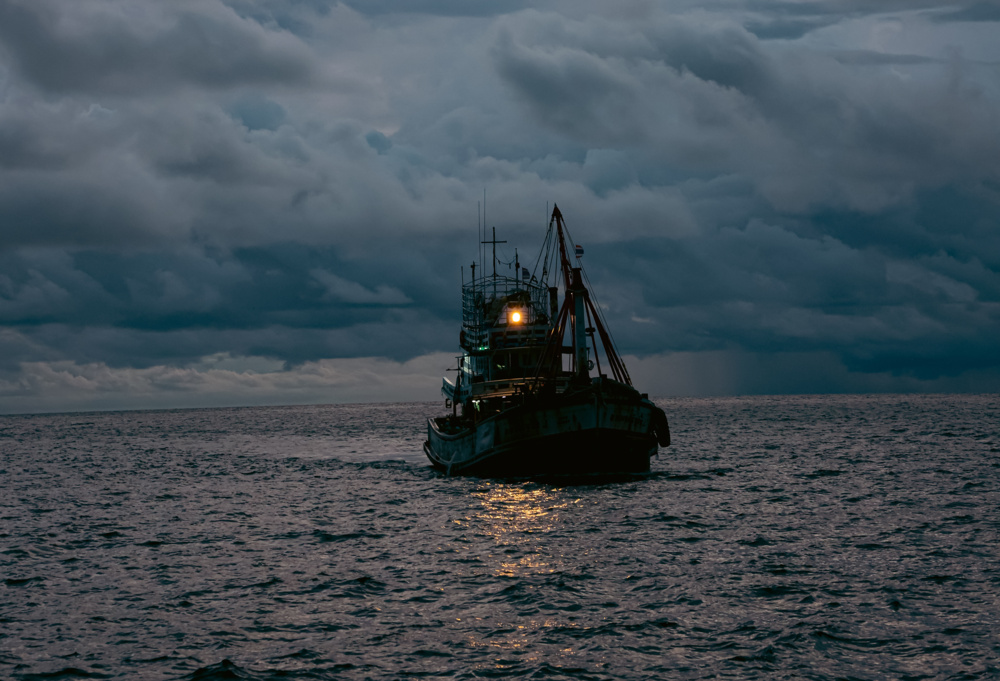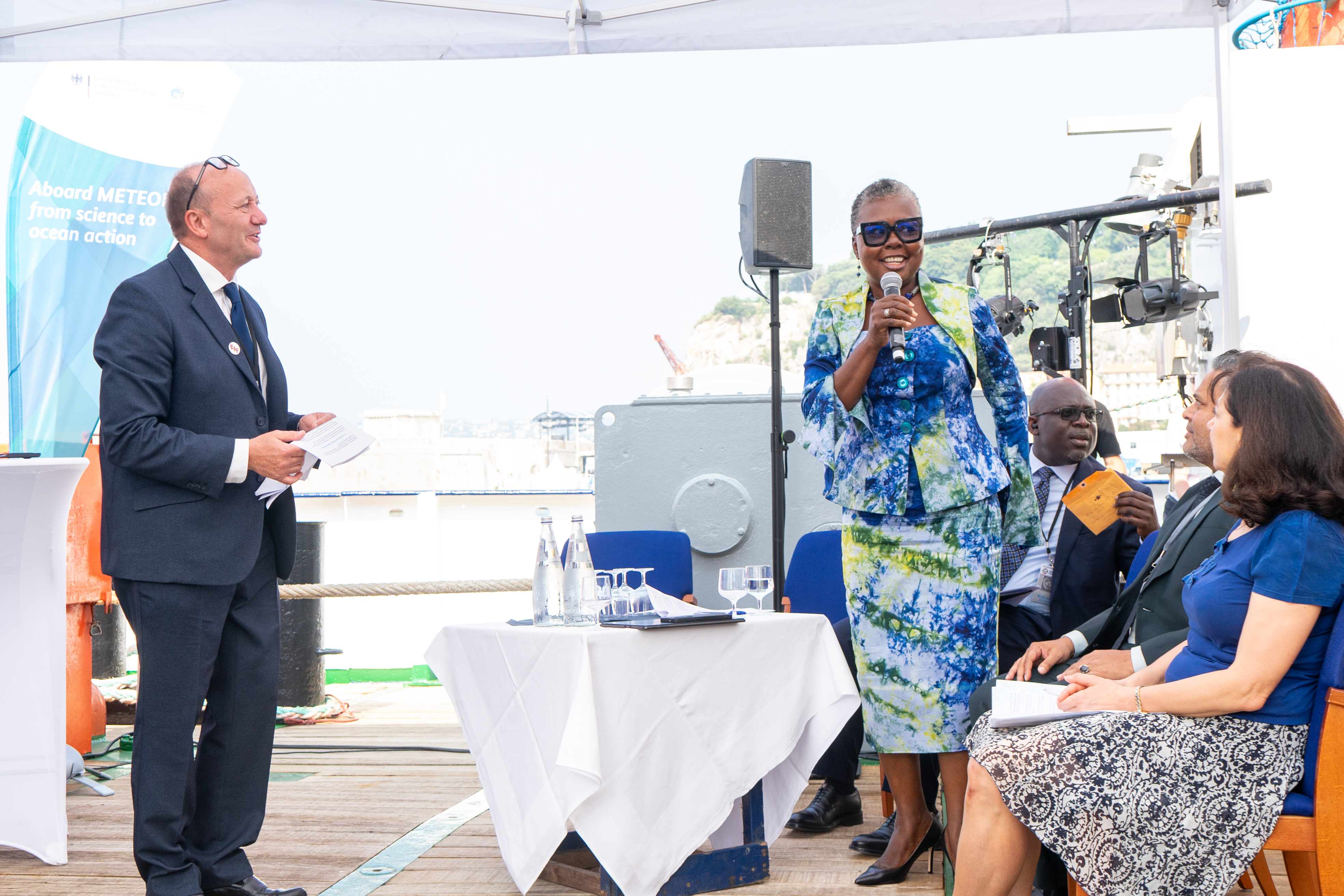
UK’s weak seafood checks risk imports tainted with human rights and environmental abuses: new report
UK consumers may unknowingly be buying seafood linked to illegal and unsustainable fishing and severe human rights abuses, according to a new report and film. This follows a near-total end to checks on imported seafood after Brexit. To stop illegally caught fish entering the UK and lead global efforts for sustainable fisheries, the UK Government must significantly strengthen its controls on seafood imports, say Coalition members the Environmental Justice Foundation (EJF) and Open Seas.
Using official data from UK authorities and EJF investigations, the report, ‘Criminal catches: How to stop the supply of illegal seafood to the UK’, finds that critical checks on seafood coming into the country have dropped to alarmingly low levels since the UK left the EU. This has left the government effectively blind as to whether the seafood reaching the public’s plates is linked to crimes like human trafficking, forced, bonded and slave labour, other human rights abuses and the destruction of ocean ecosystems, says the report.
Years of EJF investigations have uncovered illegal, unreported and unregulated fishing and serious human rights abuses on board Chinese distant-water fishing vessels – including leading fishing company Zhejiang Ocean Family Co., Ltd., which has previously reported supply chain links to UK supermarkets. Each year, the UK receives around 1,000 catch certificates from China, equating to an average of around 58,000 tonnes of seafood. Yet, despite the fleet’s serious track record for illegal fishing, the UK has refused only four seafood consignments from the country since 2012, indicating these imports are not being properly screened.
Alarmingly, no catch certificates from Russia, another one of the world’s most consistent offenders for illegal fishing, were verified or refused between 2021 and 2023. Much of the capacity to monitor and report on the UK’s IUU import controls has also been lost as a result of Brexit, says the report.
In 2024, more than a quarter of UK seafood imports came from countries within a ‘yellow card’ trade warning by the European Commission, or that were ranked among the top five countries globally for IUU fishing risk. ‘Yellow card’ warnings indicate that the EU considers those countries not to be sufficiently tackling IUU fishing.
“In recent years, the UK has entirely lost control of its seafood imports. The lack of oversight leaves us all completely in the dark about the sustainability and ethical quality of the seafood allowed into the country. Every time someone in the UK goes to the supermarket or their local seafood restaurant, they deserve to know that the fish they are buying is not tainted by environmental destruction, forced labour or even slavery”, said Steve Trent, EJF CEO and Founder.
“We know that British consumers don’t want to eat seafood caught by labour that is forced, bonded or held in slavery, or that risks tipping precious ocean ecosystems into total collapse. Over 80% of the fish eaten in the UK is imported, meaning the UK has the power, opportunity and responsibility to drive powerful change across the global fishing industry. By taking a more proactive approach, the UK can protect its market from illegally caught fish, uphold human rights at sea and safeguard marine ecosystems long into the future.”
The report urges the UK Government to take immediate action to stamp out illegal seafood imports into the UK. It should do so by updating and digitising its catch certification system and introducing a carding system to warn and sanction states failing to combat IUU fishing. The report also recommends that the Department for Environment, Food and Rural Affairs and the Marine Management Organisation (MMO) receive sufficient funding to restore their lost monitoring and reporting capacity on seafood import checks.
To ensure legal, sustainable and ethical fisheries, the UK should follow global best practice and implement the no- or low-cost and readily implementable steps of the Global Charter for Fisheries Transparency, says the report. These steps include thorough vessel tracking, identifying the ‘beneficial owners’ of fishing vessels - the people who ultimately profit from their activities - and greater monitoring to ensure that human rights abuses do not go unnoticed.
ENDS
Notes for editors
Read the report ‘Criminal catches: How to stop the illegal supply of seafood to the UK’ here and watch the film here.
Decline in seafood and IUU import controls since Brexit: As an EU Member State, the UK monitored and reported on seafood import data and IUU controls, as required under the IUU Regulation. Despite transposing this legislation into UK law since Brexit, it has stopped tracking seafood import controls, and there are now no obligations for Port Health Authorities to report such data to the MMO.
There has also been a sharp fall in the number of flag state import verifications – when the flag state of the vessel assists in checking that the seafood they caught complies with fisheries regulations – with the average annual verifications declining threefold from 2021-2024 compared to 2016-2019. As an EU member state, the UK also regularly met their reporting targets for vessel inspections. With authorities no longer required to report on this, the MMO did not provide data on seafood consignment inspections when EJF requested it.
Carding system: The EU’s carding system has a proven track record in reducing IUU fishing globally by incentivising positive reforms. Concerted efforts between the EU and the carded states to identify the weaknesses in their countries’ fisheries management and facilitate solutions to the problem have resulted in most warnings being lifted prior to the implementation of any sanctions.
About the Coalition for Fisheries Transparency
The Coalition for Fisheries Transparency is a global network of over fifty global civil society organisations that work together to improve transparency and accountability in fisheries governance and management.
The Environmental Justice Foundation and Open Seas, among others, are leading the Coalition’s efforts in the UK to accelerate the adoption of the Principles of the Global Charter for Fisheries Transparency. Their work aims to help the UK champion effective fisheries governance globally to strengthen the fight against IUU fishing.
About EJF
Our work to secure environmental justice aims to protect our global climate, ocean, forests, wetlands, wildlife and defend the fundamental human right to a secure natural environment, recognising that all other rights are contingent on this. EJF works internationally to inform policy and drive systemic, durable reforms to protect our environment and defend human rights. We investigate and expose abuses and support environmental defenders, Indigenous peoples, communities, and independent journalists on the frontlines of environmental injustice. Our campaigns aim to secure peaceful, equitable and sustainable futures. Our investigators, researchers, filmmakers, and campaigners work with grassroots partners and environmental defenders across the globe. For more information or to organise an interview with one of our team, please contact media@ejfoundation.org.
About Open Seas
Open Seas is a Scottish based charity campaigning for healthy, vibrant seas that are home to abundant fish populations, for the benefit of people, nature and future generations. Guided by science, collaborative but uncompromising, we defend the health of our seas and promote fair access and responsible use. We want marine ecosystems to be managed in ways that restore biodiversity, incentivise sustainable fishing, and ensure lasting value for society as a whole.
SIGN UP FOR OUR EMAILS AND STAY UP TO DATE WITH EJF

